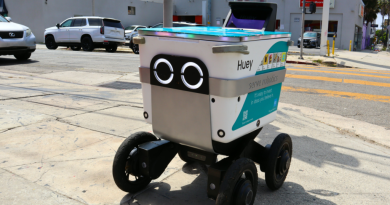Maximize Your Real Estate Investment with Smart Home Technology: A Comprehensive Guide
Maximize Your Real Estate Investment with Smart Home Technology: A Comprehensive Guide
As a real estate investor, it’s essential to stay ahead of the curve and leverage technology to enhance the value of your properties. One of the most effective ways to do this is by incorporating smart home technology into your real estate investments.
Smart home technology refers to devices and systems that automate and control various aspects of a home, such as lighting, heating, security, and entertainment. By integrating smart home technology into your properties, you can increase their market value, improve tenant satisfaction, and reduce operational costs. In this comprehensive guide, we will explore the benefits of smart home technology for real estate investors and provide tips on how to maximize your investment.
1. The Benefits of Smart Home Technology for Real Estate Investors
– Increased Property Value: Homes with smart home technology are more attractive to buyers and renters, leading to higher property values and rental rates.
– Improved Tenant Satisfaction: Smart home technology can enhance the living experience for tenants by providing convenience, security, and energy efficiency.
– Reduced Vacancy Rates: Properties with smart home technology tend to attract high-quality tenants and have lower vacancy rates.
– Energy Efficiency: Smart home devices can help reduce energy consumption and lower utility costs, increasing the overall profitability of your properties.
– Remote Monitoring and Control: Smart home technology allows you to monitor and control your properties remotely, saving time and resources.
2. Smart Home Technology for Real Estate Investments
There are various types of smart home devices and systems that you can integrate into your properties to maximize your real estate investment. Some of the most popular options include:
– Smart Thermostats: These devices help regulate the temperature in your properties, reducing energy costs and increasing comfort for tenants.
– Smart Lighting: Smart lights can be programmed to turn on and off automatically, saving energy and enhancing security.
– Smart Security Systems: These systems include cameras, motion detectors, and smart locks to improve the safety of your properties.
– Smart Appliances: Energy-efficient appliances such as smart refrigerators, ovens, and washing machines can lower utility costs and attract tenants.
– Home Automation Systems: These systems centralize the control of various smart devices, allowing for seamless integration and convenience.
3. Tips for Maximizing Your Real Estate Investment with Smart Home Technology
– Research the Market: Before investing in smart home technology, research the preferences and needs of your target market to ensure that the devices you choose will add value to your properties.
– Choose Reliable Devices: Invest in reputable brands and high-quality devices that are reliable and easy to use for both you and your tenants.
– Consider Scalability: Select smart home technology that can be easily upgraded and expanded as new devices and systems become available.
– Work with Professionals: Consider hiring a smart home technology consultant or contractor to help you design and install the right devices for your properties.
– Educate Tenants: Provide instructions and training to tenants on how to use the smart home technology in your properties to maximize their benefits and ensure proper maintenance.
In conclusion, smart home technology offers real estate investors a valuable opportunity to enhance the value and profitability of their properties. By integrating smart devices and systems into your investments, you can increase property value, improve tenant satisfaction, and reduce operational costs. Follow the tips outlined in this guide to maximize your real estate investment with smart home technology and stay ahead of the competition in the ever-evolving real estate market.






